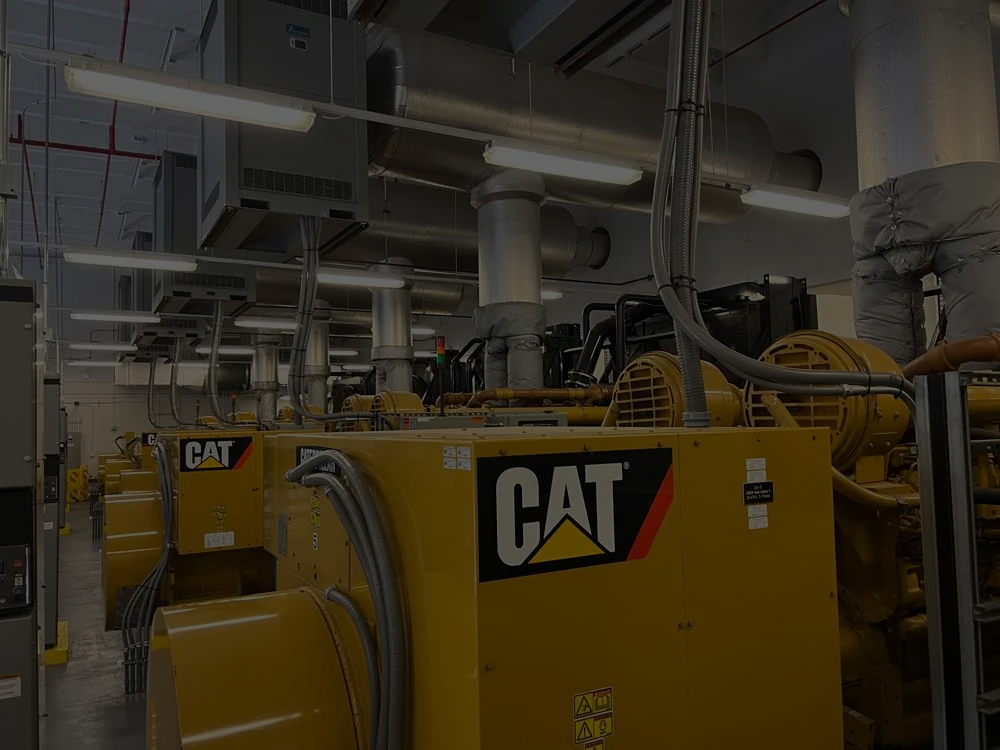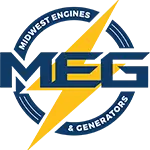
Blog
Expert Guide: Purchasing Used Generators for Construction

As an electrical contractor, securing reliable power solutions is essential. Recommending the best electric power generator for construction sites is critical. The decision between new or used equipment impacts performance, budget, and specific requirements.
Many factors need careful consideration when purchasing used generators. Familiarizing yourself with evaluating used generators can reduce costs. It helps you secure a dependable unit with the required power output that satisfies project needs.
Table of Contents:
- The Smart Way to Approach Purchasing Used Generators
- Is a Used Generator the Right Choice for Your Project?
- Essential Checks Before Purchasing Used Generators
- Dig Deep into Maintenance History
- What to Look For in Operational Hours
- The Importance of a Physical Inspection
- Load Testing: Ensuring Peak Performance of a Used Generator
- Emissions Standards and Regulatory Compliance
- Compatibility and Specifications
- Deciphering the Unit’s Usage History
- Choosing the Right Dealer
- Warranty and Return Policies
- Case Studies: Learning from Real-World Scenarios
- Future-Proofing Your Investment
- Conclusion
The Smart Way to Approach Purchasing Used Generators
Navigating the used generator market requires a clear strategy. This will avoid potential issues. Let’s walk through some valuable tips. These tips help make sure you invest wisely in power generation.
Is a Used Generator the Right Choice for Your Project?
Is it better to buy a new generator, or is purchasing a used generator a good choice? New generators come with warranties and cutting-edge technology. However, their cost might strain project finances. Used generators can reduce upfront costs, but they need careful review. A standby generator can be a reliable and cost-effective option.
Decide if cost savings offset the risks. New generators are in pristine condition. Buying used means matching a client’s risk tolerance. Factors include budget, project timeline, and the need for consistent backup power. The key question is whether temporary power outages can stall progress.
Essential Checks Before Purchasing Used Generators
Always perform these assessments when considering purchasing used generators. Here is a guide for contractors to consider when checking out used electrical equipment:
| Check | Why it Matters | What to Look For |
|---|---|---|
| Maintenance History | Shows how well the generator engine was maintained. It can reveal any possible recurring issues. | Service logs, repair records, and schedules are essential. Consistent upkeep history helps determine if a generator will run smoothly. |
| Operational Hours | Hours indicate usage. They can also point out potential physical wear on electrical components. | Aim for lower hours on a diesel generator. Check the kind of work it performed (standby vs. constant use). More hours mean more checks are needed on the generator set. |
| Physical Condition | Clear signs of abuse can affect reliability and the welds integrity. | Examine the generator commercial unit for rust, damage, or fixes. Note any broken parts and assess if crucial parts are in good working condition. |
| Load Bank Test Results | Shows how the generator holds up under load. It helps verify it handles project demands. | Request load bank test records showing stable power output. Look for reports about voltage and frequency under changing loads. |
| Emissions Compliance | Legal and ecological standards are important. Older generators might fail guidelines, leading to fees. | Check the unit’s EPA certification and local rules. Make sure it matches existing permits to avoid fines related to power generation. |
| Usage History | A generator’s past use affects its current state and expected lifespan. | Determine how the diesel generators were used. Knowing this impacts reliability and informs future maintenance. |
Dig Deep into Maintenance History
Detailed maintenance records boost confidence. They can also point out any red flags. Look for continuous schedules and details about completed fixes. A seller who is open with information demonstrates reliability.
On the flip side, incomplete or vague details must be viewed with caution. Perhaps problems were overlooked. Contractors should compare maintenance records against run-time. Watch for parts nearing their end. Purchasing used requires looking into everything.
What to Look For in Operational Hours
Run-time indicates wear on the generator engine. Think of it like miles on a used work truck. Lower hours generally mean less wear. Consider how the standby generators were used.
A generator used as backup will probably experience less stress than one used around-the-clock. Check hours against the maintenance book. Large gaps between usage and servicing raise concern.
The Importance of a Physical Inspection
Always inspect the unit yourself. Photos are helpful, but you’ll want to examine it thoroughly. A visual inspection is essential for assessing its true condition.
Look for rust and check for leaks. Identify broken parts or vibration damage. Pay close attention to exposed parts and the generator ends.
Load Testing: Ensuring Peak Performance of a Used Generator
A load bank test is essential for anyone seriously considering purchasing used generators. This checks its ability to maintain power during use. Ask for recent results from a load bank. Note voltage and frequency stability during tests. This proves solid working order.
If current load bank test info isn’t available, ask to arrange one. Reliable sellers are open to letting you confirm it runs under load banks. This effort can prevent problems down the road.
Emissions Standards and Regulatory Compliance
Environmental rules are a legal matter. Staying on top of them is crucial. Used generators have to meet current emissions standards. If not, sites may not comply with the EPA, which could lead to costly changes.
Verify the generator’s EPA and local approvals. Match it with building regulations. Non-compliance could yield fines. Or, operations may be halted. Ensure compliance to avoid these issues.
Compatibility and Specifications
Specifications need careful consideration. Will the used generator sync with equipment on location? Consider voltage, phase, and frequency ratings. A mismatch results in poor efficiency and could damage essential gear.
Seek technical expertise to confirm that a used generator works without problems. See if you can examine previous setups. Contact former users if possible.
Deciphering the Unit’s Usage History
Its past reveals important clues. Its workload shows future stress levels. Determine if the unit was for prime power or standby power. Also, learn if it faced light tasks. Find out from the previous owner or the seller what details they have about earlier work. Then, review its book to verify details.
Choosing the Right Dealer
Decide on a vendor to complete your due diligence when purchasing used generators. Consider product reviews and the business’s track record. Be sure to inquire about guarantees and return options. Choosing the right vendor can greatly impact your satisfaction.
Choose vendors known for quality and good client care. Vendors such as Nebraska Machinery may offer a better used market choice than non-certified organizations.
Warranty and Return Policies
Check the coverage given and understand its scope. Get any promises in writing. Ensure the return procedure is clear and in place. Understanding these policies reduces risk.
Being covered reduces unknowns when purchasing used generators. Get protection past the original sale. Is there support, maintenance, and parts access down the line?
Think Long Term on Fuel Types
Consider diesel fuel vs. natural gas generator or other fuel source options. Base choices around ease, expenses, and pollution impact. Make sure any used acquisition matches plans for sustainable procedures. Align choices with your company’s environmental standards.
Some organizations, such as Power Equipment Direct, feature access to email preferences, so you get reminders on fuel consumption advancements. This communication could provide insight before any purchase. Consider their advice before committing fully to a generator type.
Budget Wisely
Start with price, transport, installation, and commissioning costs. Include long-term costs like maintenance and fuel. Any necessary repairs should have their expenses understood upfront.
Be aware that a cheaper generator commercial unit in advance might end up costing more over time. In certain situations, buying newer could turn out better from a financial perspective over its life cycle. Assess the overall financial impact.
Case Studies: Learning from Real-World Scenarios
Contractors can learn from real-world cases. Review case studies of placing used generators to discover success techniques. Also, learn the common pitfalls to avoid when purchasing used generators. Utilize the knowledge of those who have gone before you.
These detailed stories help you grasp subtle but impactful choices in equipment. They demonstrate decisions that precisely match specific requirements and industrial applications.
Future-Proofing Your Investment
Consider options like remote tracking and proactive upkeep tools. Vendors such as Sitech Mid-Plains offer equipment upgrades. These assets make it easier to find faults and streamline operation. Implementing such solutions ensures long-term efficiency.
As job locations shift, consider generators with simple upgradeability and eco-friendly aspects. This assures solutions are versatile and stay cutting edge. Evaluate models with modern technology and sustainable features.
Additional Factors in Generator Investment
Besides the price tag, consider any environmental impacts and potential operational cost savings you can achieve. Some generator service companies feature digital solutions for streamlined use. Determine if those are possible inclusions with the machine being analyzed. Evaluate additional features beyond the basic specifications.
Find a machine where parts and technical assistance are readily available when needed. Does the model include backwards compatibility, so you won’t worry about its technology in a number of years? Long-term support is vital for maximizing the lifespan of the equipment.
Consider also the ease of access to generator rental options in case a backup to the backup is needed, such as during a critical project phase or while the primary unit undergoes maintenance.
Conclusion
Making smart moves when purchasing used generators requires attention to detail and a firm commitment to quality. This means focusing on future-proof elements. Stick to checking all usage considerations and learning from client case histories. Staying current with technological changes will lead to well-chosen power systems. These systems will support your project’s aims effectively, from the start and far into the future, offering reliable backup power.
